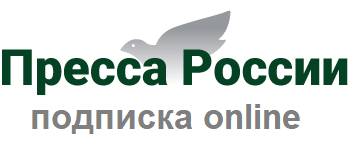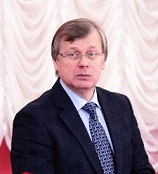Contents
OUR SPIRITUAL VALUES
A.M.SHURALYOV —
“The spirit of humility, patience, love and chastity in my heart, come back to life”.
The motive of the inviolability of marital ties in the Pushkin’s value system
V.M.EISIPOV —
In defense of Pechorin
N.N.PRIMOCHKINA —
Two “Grapes” by Ivan Shmelyov.
Metamorphoses of figurative symbolism in the writer’s works before and after the revolution of 1917
E.N.PETUKHOVA —
The problems of screen adaptation of classic literature
L.U.ZVONARYOVA —
Cryptography prose of Alexander Green and the search of graphic artists — illustrators of Green
SEARCH. EXPERIENCE. SKILLS
E.N.KOLOKOLTSEV —
M.Y.Lermontov’s poems.
IXth Grade
V.A.DOMANSKY —
Screen adaptation as an interpretation of classic literature
M.I.SHUTAN —
The study of the concept of the angel in the XIth Grade: from A.V.Vampilov to M.Y.Lermontov and A.P.Platonov
V.K.KHARCHENKO —
Reading plus… or How to get the most from the classical text
A.M.ANTIPOVA —
Y.P.Kazakov’s novels at literature lessons
Events
E.R.YADROVSKAYA, A.I.DUNEV —
To save the connection of times:
All-Russian Pedagogical Forum for Russian language and literature teachers — representatives of pedagogical dynasties
To the 85th anniversary of V.G.Marantsman
“Open Methodology” by V.G.Marantzman and Modern Humanitarian Knowledge
Abstracts and keywords
OUR SPIRITUAL VALUES
A.M.SHURALYOV —
“The spirit of humility, patience, love and chastity in my heart, come back to life”.
The motive of the inviolability of marital ties in the Pushkin’s value system
Abstract. The article considers the motive of the unbreakable marital ties in the context of religious-moral searches, creative path and the value system of Pushkin’s artistic world.
Keywords: Boldin’s autumn, marital ties, spiritual space, plot and figurative system, axiological and culturological meanings.
V.M.EISIPOV —
In defense of Pechorin
Abstract. In the literary articles of the past decade, Lermontov’s Pechorin appears as a ruthless and immoral killer. At the same time Grushnitsky is considered as Pechorin’s innocent victim. However, with a careful reading, Grushnitsky appears as immoral person. The circumstances that preceded the duel, and the duel itself, are the subject of this article. The author also answers the problematic question: what was the reason for the charm of Pechorin’s image for the young readers of the Soviet era.
Keywords: Lermontov, Belinsky, Pechorin, Grushnitsky, princess, conspiracy, duel, Onegin, Lensky, Tatyana, Vinogradov, honesty, courage, will, Nicholas I, era, youth, individualism.
N.N.PRIMOCHKINA —
Two “Grapes” by Ivan Shmelyov.
Metamorphoses of figurative symbolism in the writer’s works before and after the revolution of 1917
Abstract. The author compares two stories under the same title “Grapes”, created by I.S.Shmelyov in 1913 and 1936 and shows how the symbolic content of the image of grapes changed after the revolution. A symbol of a blossoming, eternally renewing life turned into a symbol of national sorrow and tears.
Keywords: Shmelyov’s two stories “Grapes”, symbol of grapes, writer’s sentence, destroyers of Russia.
E.N.PETUKHOVA —
The problems of screen adaptation of classic literature
Abstract. The article deals with important problems of screen adaptation of literary works in connection with various types of screen versions. Examples of successful and unsuccessful attempts for Russian classics’ film adaptations are given.
Keywords: screen adaptation, problem, type, interpretation, rethinking, literary source.
L.U.ZVONARYOVA —
Cryptography prose of Alexander Green and the search of graphic artists — illustrators of Green
Abstract. L.Zvonareva (Russian Children Foundation), author of “Covert Images of A.Grin and Artists Graphic Research” underlines Christian and Polish mentality of the writer. The latter practically appealed to the Virgin Mary image worshiped by the Catholics all over the world when depicting his Running over the Waves heroine. L.Zvonareva draws special attention to the graphics of the four artists, namely: Savva Brodsky and Tatiana Tolstaya from Moscow, Alexander Khoudchenko from Crimea and Vladimir Kozlinsky form St. Petersburg.
Keywords: Christian and Polish mentality, symbol, the Silver age, sea landscape, artistic themes, graphic work sets.
SEARCH. EXPERIENCE. SKILLS
E.N.KOLOKOLTSEV —
M.Y.Lermontov’s poems.
IXth Grade
Abstract. The article proposes a technique for studying Lermontov’s poems “The Duma”, “The Poet”, “The Prophet”, “The Motherland” in close connection with the peculiarities of their composition and artistic form.
Keywords: time, space, stylistic polyphony, metaphor, contrast, composition, stanza, genre, verse size.
V.A.DOMANSKY —
Screen adaptation as an interpretation of classic literature
Abstraсt. The article reveals the scientific and methodological groundworks for using the screen versions of classical works in the process of learning literature. The types of screen versions, methodical methods and forms of work in order to advance a movie-goer are presented and analyzed. The reference to the screen version in the study of I.S.Turgenev’s creative work was demonstrated by the specific example (television mini-series “Bazarov’s Mistake” by Avdotya Smirnova (2009)) which actualizes the modern dialogue about the novel “Fathers and Sons”.
Keywords: multimedia, classic literature, screen adaptation, types of film adaptation, methodical techniques, language of cinema, interpretation, film versions of works by Turgenev.
M.I.SHUTAN —
The study of the concept of the angel in the XIth Grade: from A.V.Vampilov to M.Y.Lermontov and A.P.Platonov
Abstract. The article presents students activity in summarizing the study of A.V.Vampilov’s play “Twenty minutes with an angel” in consideration of the context of Russian literature in connection with the conceptual image of an angel.
Keywords: concept, lexical meaning of the word, image, romantic antithesis, context, summarizing lesson.
V.K.KHARCHENKO —
Reading plus… or How to get the most from the classical text
Abstract. The author emphasizes the need of reading out loud and re-reading the classical literature and memorizing the poetry and rewriting favorite fragments.
Keywords: classical text, reading out loud, repeated reading, memorizing poems, rewriting the fragments.
A.M.ANTIPOVA —
Y.P.Kazakov’s novels at literature lessons
Abstract. The author presents various strategies for studying of Y.P.Kazakov’s works. The plan of studying the writer’s books from 5th to the 11th grades is presented based on the pedagogical experience.
Keywords: artistic world of Y.P.Kazakov, literary education, education, study strategies, extracurricular reading.
Events
E.R.YADROVSKAYA, A.I.DUNEV —
To save the connection of times:
All-Russian Pedagogical Forum for Russian language and literature teachers — representatives of pedagogical dynasties
Abstract. The authors present the results of the All-Russian Pedagogical Forum “To save the connection of times” held in St.Petersburg. Effective ways of uniting Russian language and literature teachers, promoting methodological experience, preserving traditions and developing the Russian education were implemented through the forum. The importance of the profession was actualized in the life of the country.
Keywords: pedagogical dynasties; Russian language and literature teachers; pedagogical experience promotion; Russian language and literature teaching problems.
To the 85th anniversary of V.G.Marantsman
“Open Methodology” by V.G.Marantzman and Modern Humanitarian Knowledge
Abstract. The article is dedicated to the 85th anniversary of V.G.Marantzman. It reflects the main ideas and problems of modern methods of teaching the Russian language and literature.
Keywords: open methodology, technologies of connection of methodology with other sciences.









